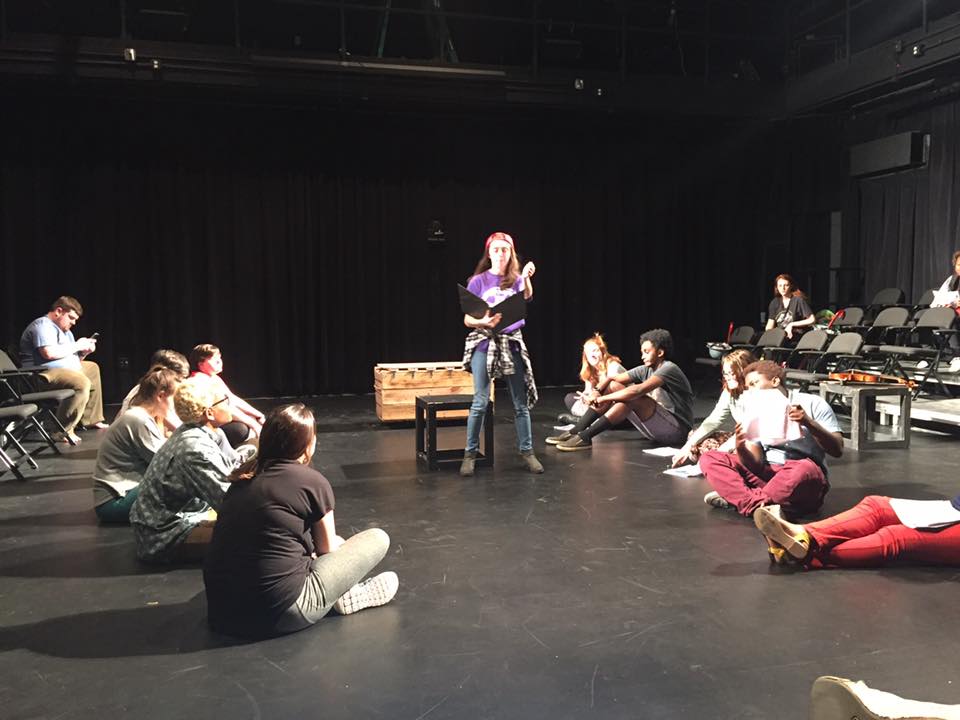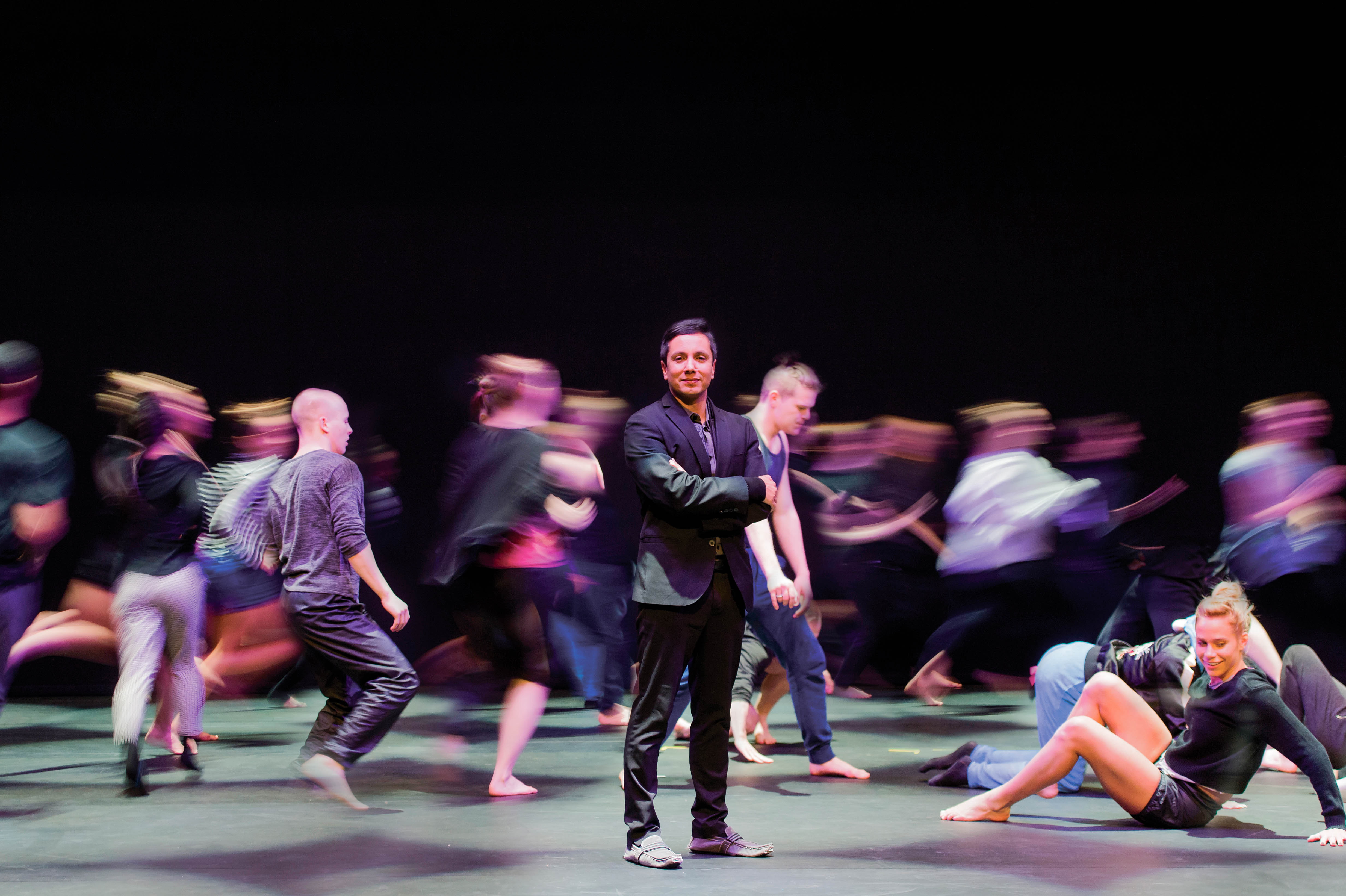The Department of Theatre and Performance Studies chased windmills across the stage in their new production titled “Don Quixote Ugly” on Feb. 22-23.
Director Charles Parrott and his ensemble of 13 theater majors crafted a new take on a classic story: “Don Quixote” by Miguel de Cervantes. The play was devised through a series of improvisational and movement-based rehearsals, which Parrott used to draft a script.
After the show, the cast revealed to the audience that parts of the show were taken from those initial improv rehearsals, such as when Don Quixote meets his sidekick for the first time.
The story starts when Maximiliano, played by junior Gabriela Gordon, arrives in a town with Tomas, her talking donkey played by junior Kyle Corbett. They stumble upon a town and offer the villagers stories in exchange for food, wine and shelter. The villagers have little patience for storytellers and actors, presuming them to all be liars, but Maximiliano assures them that all the stories are true. He goes on to tell them the story of Don Quixote and his companion, Sancho.
The show used the type of comedy one might expect from a “Don Quixote” story — a comedic style similar to that of “Monty Python’s Flying Circus.” In conjunction with slap-stick humor, the cast used random, everyday objects as props, all of which symbolized something different. This required the audience to suspend their disbelief and fill in the blanks with their own imaginations.
This style is an interesting way to tell the story of Don Quixote, a character who doesn’t see the world in quite the “right” way. He sees monsters in windmills and armies in flocks of sheep. With a little help from the cast, the audience was able to see those things as well.
Gender was both mocked and somewhat ignored in the piece. Both Don Quixote and Sancho, who are typically male characters, were played by females Willa Sanders and Ke’ilah Bailey. While this did not directly affect the story, it was referenced occasionally in the dialogue. Maximiliano’s ambiguous gender was also referenced several times by Gordon herself as well as other members of the ensemble. Though the gender-bending did not seem to be purposeful, the confusion of gender added to the theme of things not being what they seem, further forcing the audience to suspend its disbelief.
The theatre department’s next show is Chekhov’s “Three Sisters,” which will run in the Stillwell Theater March 16 – 26, Thursday through Saturday at 8 p.m. and Sunday at 2 p.m. Tickets range from $5 to $20 and can be bought online at the Kennesaw Theatre website or on campus at the box office.



